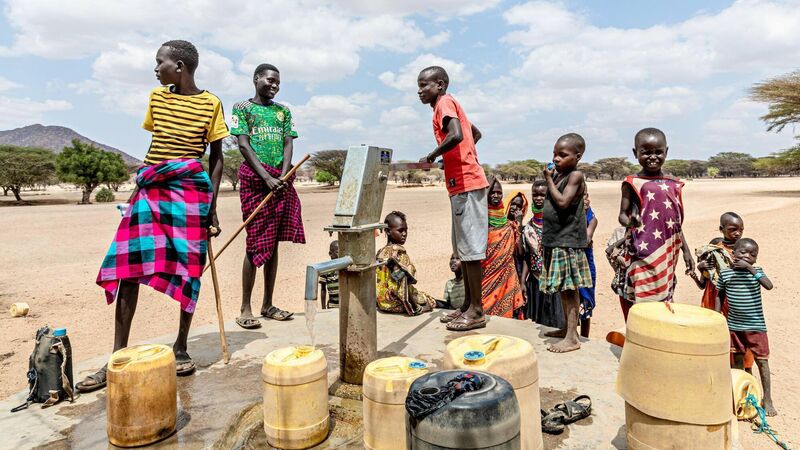World's food production at risk of failure due to growing water scarcity, experts warn

Children pump water at a tap in Kangalita Kangalita, a region in Kenya that has been severely affected by drought.
More than half the world’s food production will be at risk of failure within the next 25 years as a rapidly accelerating water crisis grips the planet, unless urgent action is taken to conserve water resources and end the destruction of the ecosystems on which our fresh water depends, experts have warned in a landmark review.
Half the world’s population already faces water scarcity, and that number is set to rise as the climate crisis worsens, according to a report from the Global Commission on the Economics of Water, published on Thursday.
CLIMATE & SUSTAINABILITY HUB













